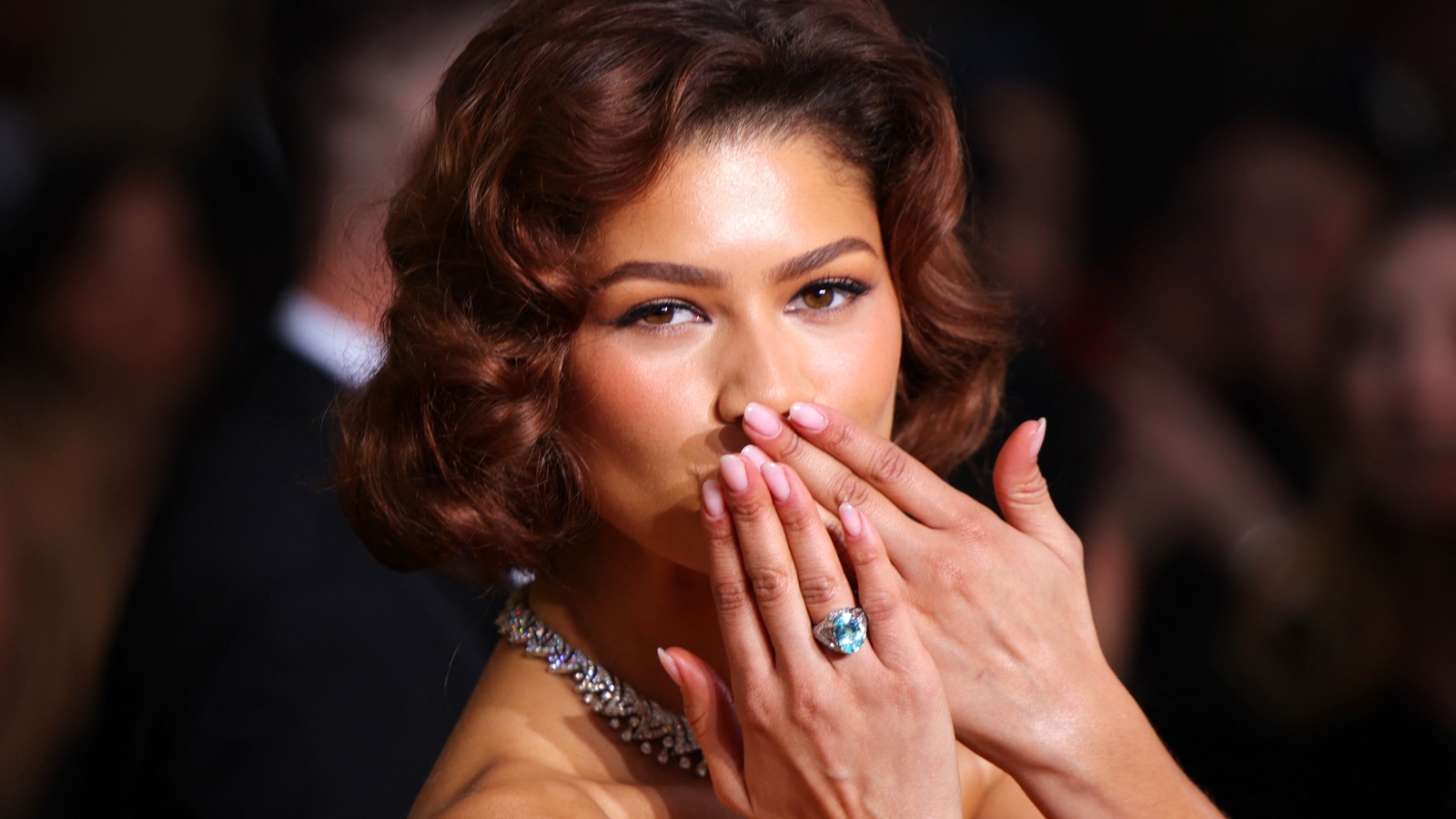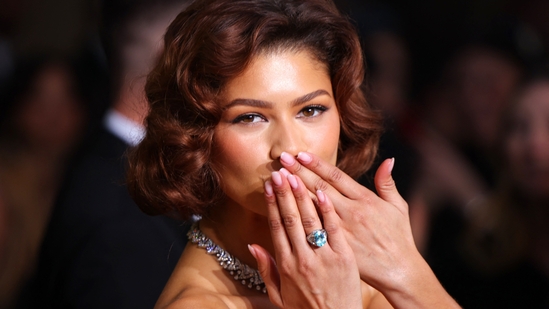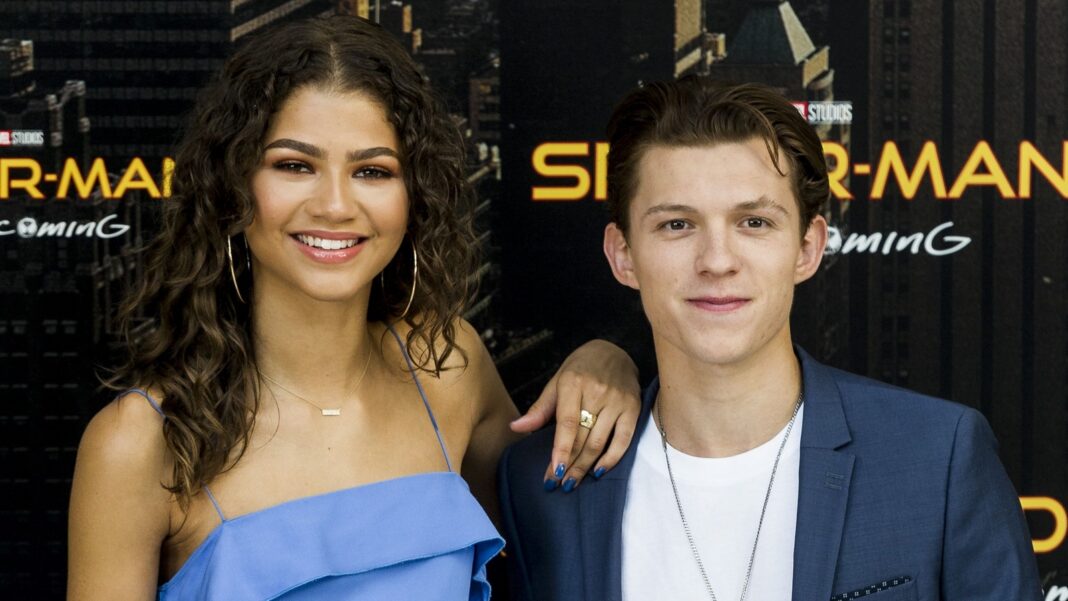## Tom Holland, Zendaya, and a TikToker Walk Into a Bar… No, This Isn’t a Joke! The internet, that breeding ground for both viral trends and outlandish claims, is at it again. This time, a TikToker is stirring the pot with a hilarious (and most likely fabricated) tale of a clandestine encounter with none other than Tom Holland. While the story itself is likely a work of fiction, it’s sparked a wave of amusement and speculation among fans of the Spider-Man star and his real-life girlfriend, Zendaya. We dive into the viral TikTok, separating fact from fiction, and exploring why this seemingly outlandish story has captured the internet’s attention. Buckle up, because this ride is going to be wild (and probably a little bit cheesy).
Beyond the Buzz: Examining the Impact of Celebrity Gossip

The entertainment industry’s relationship with celebrity gossip is a complex and multifaceted one. On the one hand, gossip and speculation can be a major driver of interest and engagement, particularly when it comes to high-profile relationships and scandals. On the other hand, the pursuit of celebrity gossip can also be seen as a form of voyeurism, where fans and audiences are more interested in the personal lives of celebrities than in their actual work or talents.
In recent years, the rise of social media has only amplified the impact of celebrity gossip. With platforms like Instagram, Twitter, and TikTok, fans and audiences can now follow celebrities and stay up-to-date on their personal lives in real-time. This has created a 24-hour news cycle, where gossip and rumors can spread quickly and take on a life of their own.
One recent example of this is the claim made by TikToker @jazmineisblack that Tom Holland cheated on Zendaya with her. While the claim was likely intended as a joke, it sparked a frenzy of speculation and debate among fans and audiences, with many taking to social media to share their thoughts and opinions on the matter.
So, what does this say about the impact of celebrity gossip on our culture and society? And how can we navigate the complexities of celebrity relationships and gossip in a responsible and respectful way?

The Business of Fame: Exploring the Symbiotic Relationship between Celebrity Gossip and the Entertainment Industry
The entertainment industry has a long history of using celebrity gossip and scandals to drive interest and engagement in movies, TV shows, and music. From the early days of Hollywood to the present day, gossip and rumors have been a major factor in shaping public perception and opinion about celebrities and their work.
One key factor in this symbiotic relationship is the way that gossip and scandals can be used to create a sense of drama and excitement around a celebrity’s personal life. This can be particularly effective when it comes to high-profile relationships, where fans and audiences are eager to know more about the personal lives of their favorite celebrities.
For example, the rumored relationship between Tom Holland and Zendaya has been a major story in the entertainment industry for years, with fans and audiences eagerly following every development and update. This has created a sense of drama and excitement around the couple, which has in turn driven interest and engagement in their work and personal lives.
However, this also raises important questions about the ethics of celebrity gossip and the impact it can have on celebrities and their personal lives. When does gossip and speculation become invasive and intrusive, and how can we navigate these complexities in a responsible and respectful way?

Sensationalism and Clickbait: Analyzing the Role of Media Outlets in Shaping Celebrity Gossip
Media outlets play a major role in shaping the narrative around celebrity gossip and scandals. From the early days of tabloids to the present day, media outlets have used sensationalized headlines and clickbait-style reporting to drive interest and engagement in celebrity gossip.
One key factor in this is the way that media outlets often prioritize sensational stories over factual reporting. This can lead to a culture of clickbait and sensationalism, where headlines are more important than accuracy or fairness.
For example, the recent claim made by TikToker @jazmineisblack that Tom Holland cheated on Zendaya with her was widely reported on by media outlets, with many using sensationalized headlines to drive interest and engagement.
However, this also raises important questions about the role of media outlets in shaping the narrative around celebrity gossip and scandals. When do media outlets cross the line from responsible reporting to sensationalism and clickbait, and how can we hold them accountable for their actions?
The Blurring of Lines: Examining the Ethical Considerations Surrounding Celebrity Relationships
The blurring of lines between public and private life is a major issue in the entertainment industry, particularly when it comes to celebrity relationships. With the rise of social media, fans and audiences have more access than ever to the personal lives of celebrities, which can create a sense of voyeurism and intrusion.
One key factor in this is the way that celebrities are expected to present a perfect public image, even when it comes to their personal relationships. This can create a sense of pressure and stress, particularly for celebrities who are in the public eye.
For example, the rumored relationship between Tom Holland and Zendaya has been subject to intense scrutiny and speculation, with many fans and audiences eagerly following every development and update.
However, this also raises important questions about the ethics of celebrity relationships and the impact they can have on celebrities and their personal lives. When do celebrities have the right to a private life, and how can we respect their boundaries and privacy in a responsible and respectful way?
The Importance of Critical Consumption: Emphasizing the Need for Fact-Checking and Responsible Reporting
Critical consumption is an essential aspect of responsible reporting and media consumption. In the age of social media, it’s easier than ever to spread misinformation and false rumors, which can have serious consequences for individuals and communities.
One key factor in this is the need for fact-checking and verification. With the rise of social media, it’s easier than ever to spread false information and rumors, which can be difficult to track and correct.
For example, the recent claim made by TikToker @jazmineisblack that Tom Holland cheated on Zendaya with her was widely reported on by media outlets, with many using sensationalized headlines to drive interest and engagement.
However, this also raises important questions about the role of media outlets in shaping the narrative around celebrity gossip and scandals. When do media outlets cross the line from responsible reporting to sensationalism and clickbait, and how can we hold them accountable for their actions?
Fact-Checking in the Digital Age: Emphasizing the Need for Critical Thinking and Verification
Fact-checking is an essential aspect of responsible reporting and media consumption. In the age of social media, it’s easier than ever to spread misinformation and false rumors, which can have serious consequences for individuals and communities.
One key factor in this is the need for critical thinking and verification. With the rise of social media, it’s easier than ever to spread false information and rumors, which can be difficult to track and correct.
For example, the recent claim made by TikToker @jazmineisblack that Tom Holland cheated on Zendaya with her was widely reported on by media outlets, with many using sensationalized headlines to drive interest and engagement.
However, this also raises important questions about the role of media outlets in shaping the narrative around celebrity gossip and scandals. When do media outlets cross the line from responsible reporting to sensationalism and clickbait, and how can we hold them accountable for their actions?
Protecting Privacy: Discussing the Importance of Respecting Celebrities’ Boundaries and Privacy
Protecting privacy is an essential aspect of responsible reporting and media consumption. In the age of social media, it’s easier than ever to spread misinformation and false rumors, which can have serious consequences for individuals and communities.
One key factor in this is the need to respect celebrities’ boundaries and privacy. With the rise of social media, fans and audiences have more access than ever to the personal lives of celebrities, which can create a sense of voyeurism and intrusion.
For example, the rumored relationship between Tom Holland and Zendaya has been subject to intense scrutiny and speculation, with many fans and audiences eagerly following every development and update.
However, this also raises important questions about the ethics of celebrity relationships and the impact they can have on celebrities and their personal lives. When do celebrities have the right to a private life, and how can we respect their boundaries and privacy in a responsible and respectful way?
Promoting Healthy Discussions: Encouraging Respectful and Nuanced Conversations about Celebrity Relationships
Promoting healthy discussions is an essential aspect of responsible reporting and media consumption. In the age of social media, it’s easier than ever to spread misinformation and false rumors, which can have serious consequences for individuals and communities.
One key factor in this is the need to promote respectful and nuanced conversations about celebrity relationships. With the rise of social media, fans and audiences have more access than ever to the personal lives of celebrities, which can create a sense of voyeurism and intrusion.
For example, the recent claim made by TikToker @jazmineisblack that Tom Holland cheated on Zendaya with her was widely reported on by media outlets, with many using sensationalized headlines to drive interest and engagement.
However, this also raises important questions about the role of media outlets in shaping the narrative around celebrity gossip and scandals. When do media outlets cross the line from responsible reporting to sensationalism and clickbait, and how can we hold them accountable for their actions?
Conclusion
So, did a TikToker seriously claim Tom Holland cheated on Zendaya with them? While the story is undeniably hilarious and has captivated social media, it ultimately serves as a reminder of the blurry lines between reality and online entertainment. The viral nature of the claim highlights the powerful influence of social media, where even seemingly outlandish stories can quickly gain traction and spark widespread discussion. This incident also raises questions about the ethics of crafting and sharing online narratives, particularly when they involve real people. While the TikToker’s intentions may have been purely comedic, the potential for harm to the reputations of those involved cannot be ignored. As social media continues to evolve, it’s crucial to engage with its content critically and responsibly, recognizing that what we see online is not always a true reflection of reality. Ultimately, the Tom Holland “cheating” saga reminds us that laughter, while enjoyable, shouldn’t come at the expense of truth and respect. Let’s strive for a digital landscape where humor doesn’t require the deconstruction of someone else’s life.

